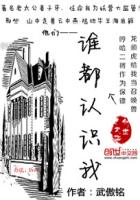Some philosophers think that the 'last' agent-the 'agent' in the strictest sense-enters in through certain pores, and so the patient suffers action. It is in this way, they assert, that we see and hear and exercise all our other senses. Moreover, according to them, things are seen through air and water and other transparent bodies, because such bodies possess pores, invisible indeed owing to their minuteness, but close-set and arranged in rows: and the more transparent the body, the more frequent and serial they suppose its pores to be. Such was the theory which some philosophers (induding Empedocles) advanced in regard to the structure of certain bodies. They do not restrict it to the bodies which act and suffer action: but 'combination' too, they say, takes place 'only between bodies whose pores are in reciprocal symmetry'. The most systematic and consistent theory, however, and one that applied to all bodies, was advanced by Leucippus and Democritus: and, in maintaining it, they took as their starting-point what naturally comes first.
For some of the older philosophers thought that 'what is' must of necessity be 'one' and immovable. The void, they argue, 'is not':
but unless there is a void with a separate being of its own, 'what is'
cannot be moved-nor again can it be 'many', since there is nothing to keep things apart. And in this respect, they insist, the view that the universe is not 'continuous' but 'discretes-in-contact' is no better than the view that there are 'many' (and not 'one') and a void.
For (suppose that the universe is discretes-in-contact. Then), if it is divisible through and through, there is no 'one', and therefore no 'many' either, but the Whole is void; while to maintain that it is divisible at some points, but not at others, looks like an arbitrary fiction. For up to what limit is it divisible? And for what reason is part of the Whole indivisible, i.e. a plenum, and part divided? Further, they maintain, it is equally necessary to deny the existence of motion.
Reasoning in this way, therefore, they were led to transcend sense-perception, and to disregard it on the ground that 'one ought to follow the argument': and so they assert that the universe is 'one'
and immovable. Some of them add that it is 'infinite', since the limit (if it had one) would be a limit against the void.
There were, then, certain thinkers who, for the reasons we have stated, enunciated views of this kind as their theory of 'The Truth'.... Moreover, although these opinions appear to follow logically in a dialectical discussion, yet to believe them seems next door to madness when one considers the facts. For indeed no lunatic seems to be so far out of his senses as to suppose that fire and ice are 'one': it is only between what is right and what seems right from habit, that some people are mad enough to see no difference.
Leucippus, however, thought he had a theory which harmonized with sense-perception and would not abolish either coming-to-be and passing-away or motion and the multiplicity of things. He made these concessions to the facts of perception: on the other hand, he conceded to the Monists that there could be no motion without a void. The result is a theory which he states as follows: 'The void is a "not being", and no part of "what is" is a "not-being"; for what "is" in the strict sense of the term is an absolute plenum. This plenum, however, is not "one": on the contrary, it is a many" infinite in number and invisible owing to the minuteness of their bulk. The "many"move in the void (for there is a void): and by coming together they produce "coming to-be", while by separating they produce "passing-away". Moreover, they act and suffer action wherever they chance to be in contact (for there they are not "one"), and they generate by being put together and becoming intertwined. From the genuinely-one, on the other hand, there never could have come-to-be a multiplicity, nor from the genuinely-many a "one": that is impossible. But' (just as Empedocles and some of the other philosophers say that things suffer action through their pores, so)'all "alteration" and all "passion" take place in the way that has been explained: breaking-up (i.e. passing-away) is effected by means of the void, and so too is growth-solids creeping in to fill the void places.' Empedocles too is practically bound to adopt the same theory as Leucippus. For he must say that there are certain solids which, however, are indivisible-unless there are continuous pores all through the body. But this last alternative is impossible: for then there will be nothing solid in the body (nothing beside the pores) but all of it will be void. It is necessary, therefore, for his 'contiguous discretes' to be indivisible, while the intervals between them-which he calls 'pores'-must be void. But this is precisely Leucippus' theory of action and passion.
Such, approximately, are the current explanations of the manner in which some things 'act' while others 'suffer action'. And as regards the Atomists, it is not only clear what their explanation is: it is also obvious that it follows with tolerable consistency from the assumptions they employ. But there is less obvious consistency in the explanation offered by the other thinkers. It is not clear, for instance, how, on the theory of Empedocles, there is to be 'passing-away' as well as 'alteration'. For the primary bodies of the Atomists-the primary constituents of which bodies are composed, and the ultimate elements into which they are dissolved-are indivisible, differing from one another only in figure. In the philosophy of Empedocles, on the other hand, it is evident that all the other bodies down to the 'elements' have their coming-to-be and their passingaway: but it is not clear how the 'elements'














